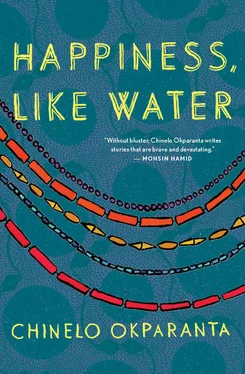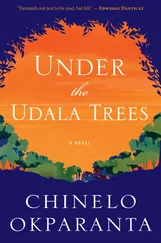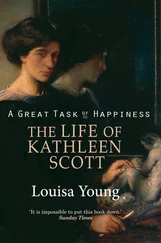She even imagines him asking her how she expects to survive without a job, without any income. ‘A grown woman like you living off your mama?’ she imagines him saying. When he asks it, she does not bother to respond. Instead, she thinks of herself back at her teaching job, and she thinks how grateful she will be to be back.
In her imagination, Eze continues to chide, but she continues to pack her bag. When it is all packed, she lifts it from the bed and only pauses to say goodbye.
She sits there and imagines all this, and she waits. But it is a long while before he enters the room, and a long time before she musters the courage to zip up the suitcase and leave.
It is an even longer time before we meet each other by chance on Ohaeto Street; and it is a bit more time before Chinwe decides — without her mother’s influence — that she will try her hand at marriage again, this time by becoming my wife.
The healing was a thing that Ezinne’s mother, Nneka, told Chibuzo about weeks ago, nearly a month now. Afterwards, on the same night of the telling, he dreamed of it.
In his dream, he watched the entire process as if watching it on a television screen. But it was not on a television screen that he watched it, rather on an old, brittle bar of Ivory soap.
It was not easy watching the healing on the bar of soap: the images were small, and had missing portions in them — those places where fissures had formed on the soap, a result of desiccation. The fissures made it hard for him to see, but even without them, the viewing would have been difficult still, because the images were themselves like soap when wet: slippery, with bubbles all around, dissolving and hard to grasp.
In the dream, his trouble viewing the images was what caused Chibuzo to pay a visit to the native doctor. He went to her in order to see if she could show them to him on something better than the bar of soap. He asked to see it on a kom kom of evaporated milk, after its paper label had been peeled off, or even just on the surface of a drinking gourd; and she, the dibia, did in fact show it to him more clearly: as he requested, on the can of evaporated milk.
Now he stood by the kitchen door, bidding the visitors goodbye. Ezinne’s mother, Nneka, stood by his side.
The kitchen smelled of tomato stew, the thin kind, with peppers and spices mixed in, but thin because it had been made with more water than usual, so that it would be enough to feed the mass of invited guests. (The guests had eaten the stew with rice, and afterwards they had chased the meal down with jugs of palm wine.)
The purpose of the dinner was to ensure that Chibuzo’s wife, Ezinne, had the well-wishes, and sympathy, and even the gratitude of the neighbours. Because everyone knew what happened to Mbachu’s wife: first, going so many years without getting with child, and then finally getting with child only to lose it.
It had been all over town, this case of Mbachu’s wife. Some said that her childlessness was due to the malice of jealous neighbours (Mbachu’s wife was after all very beautiful). Or perhaps her childlessness was simply a result of a general indifference on the part of the townspeople. Surely, the rumours said, apathy had a way of creating negative energy, and this negative energy had the ability to reinforce itself in the barrenness of one’s womb.
Mbachu’s relatives eventually began prodding him to leave his wife and take another, one who could give him children, sons especially, to carry on the family name. Some time around then, his wife became with child. It was serendipitous, and owing to it, the rumours died down.
But then, just as unexpectedly, it was announced that she had lost the child. This loss reignited the rumours, which then persisted well beyond the day that Mbachu cast her off, beyond the day that Mbachu took another wife, even beyond the day, years later, that this new wife bore him a son.
The idea of malice and negative energy made sense to Chibuzo. And anyway, who was he to go against this collective explanation? It was after all agreed upon by so many. Who was he to say that malice and apathy weren’t indeed potential causes of barrenness?
And so, the dinner: so that Chibuzo could avert any malice or negativity that was being directed at Ezinne. So that he could divert from her a fate similar to that of Mbachu’s wife.
They had been sitting in the parlour when Nneka told Chibuzo of the healing. It was night time, and NEPA had taken light, so it was dark all around, except for the small flame of the candle that sat on a denuded kom kom.
Nneka told him the story very simply: that she herself had gone to a dibia, a long time ago. She’d gone for the same reasons that she was recommending the dibia for Ezinne: because a long time ago, she too had been unable to conceive. It was only thanks to the dibia that she was finally able to get with child — finally able to beget Ezinne, which was lucky, because, had she not, there was a good chance that Ezinne’s father — God rest his soul — would have cast her away and taken another wife. She would not have blamed him, she said. After all, what kind of man was content to keep an mgbaliga, an empty barrel, as a wife?
Ezinne was in the bedroom when Nneka made the revelation. The room was down the corridor, past the kitchen.
Ezinne was also in the bedroom now, weeks later. The dinner had worn her out, physically — because she was after all the one who made the preparations for it (with just a little help from Nneka and from the housegirls). It had been mentally exhausting too, because all the while her mind had been heavy with the knowledge that she was the subject of the dinner, that some imperfection in her was the reason for all that wahala, all that trouble. And what if the imperfection was not really even in her? What if it was in him ? It was a thought that she could not dare voice. It was generally understood that such things were the fault of the woman.
Earlier this morning, just at the break of dawn, they had all three of them driven to the dibia’s. (Chibuzo had gone along on the visit. It was in his best interest to do so, he said. Besides, it was a Saturday. He could afford to go along, not having the constraint of work.)
The dibia’s place was in the outskirts of Port Harcourt, one of the villages at nearly an hour’s drive from Rumuola. The road leading directly into the village was made of earth, not paved with tar like all the roads that came before. Green and yellow grass stood on either side of it, the blades rising high, as tall as small children. And then there were the goats, fading in and out of the grass, and the cows, and the chickens, and also the dogs.
Emmanuel, Nneka’s chauffeur, was the one who drove them there. Every once in a while, he turned a corner and exclaimed, ‘Sorry o! Ndo!’ because, in those parts where the green grass grew high, and the cornstalks stood even taller than the grass, it was hard for him to see the cows. And so, coming out of several turns, he’d very nearly hit a cow, and he’d slam forcefully on the brakes, and there’d be that sudden jerk of the SUV followed by his apology. It was indeed a bumpy ride. But eventually they arrived.
The dibia practised in one corner of her veranda. In another corner she sold snacks — sweets, Nabisco wafers, chewing gum, groundnuts, as well as the oils and roots she used in her healing.
The veranda was made of grey cement. Its roof was an extension of the main house’s roof: it was made of thatch, and of patches of zinc. A railing ran around the front of the veranda, like a half-wall. In the corner where there were no items to be sold sat a stool, and to the side of the stool — on the veranda’s railing — a jerrycan of water, a clear drinking glass and a straw, which rose like a buoy from inside the glass.
Читать дальше












